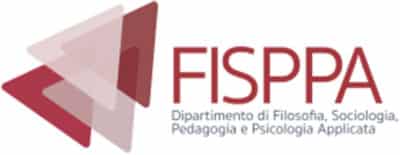

Our Short Specialization Degree in Social Media, Public Opinion and Political and Electoral Marketing trains professionals to work in the field of communication through social media and political, electoral and institutional marketing, in collaboration with political institutions, local authorities, professional associations, non-profit organizations, etc.
Our course provides students with the theoretical and practical skills necessary to build and manage the essential steps of the client’s political strategy both online and offline. At the end of the Master, students will be able to design and conduct a campaign based on strategic communication through a conscious use of social media, read and use survey and poll data to develop a successful campaign, lay out an effective storytelling strategy tailored for the leader, party, or organization they represent, develop a communication plan for an electoral campaign, manage the client’s media presence and promote their image, communicate with media outlets, and manage the press office of local authorities, institutions, and associations.
The teaching activities of our Short Specialization Degree in Social Media, Public Opinion and Political and Electoral Marketing aims at training professionals in the field of social media communication and political and electoral marketing through the use of both theoretical and practical lessons.
The course includes workshops and seminars held by professionals and industry experts and focused on the main topics addressed by the scheduled lessons.
The Master also includes an internship at a selected institution or association, individual or group research activities, and the possibility to attend dedicated conferences and seminars.
Our Short Specialization Degree in Social Media, Public Opinion and Political and Electoral Marketing is addressed to communication professionals who seeks to become experts in the fields of political and institutional communication, marketing, brand storytelling, political and institutional advertising, social media strategy and management, electoral data analysis, or political journalism.
Students will have the chance to find career opportunities in public institutions or administrations, political parties, unions, public or private agencies and associations, advertising, and political journalism. Thanks to their acquired skills in digital communication and media language, our students might also have the chance to work as media and communication experts in firms, startups, professional associations, and public administrations.
Our Short Specialization Degree in Social Media, Public Opinion and Political and Electoral Marketing is organized according to the following modules:
1st Module: THEORY OF MEDIA ANALYSIS
The first module addresses the importance of media in contemporary society, focusing on the role and effects of social media, an exploration of the concepts of “transmedia”, virality, digital culture and platform society, public opinion, framing, and agenda setting.
2nd Module: DIGITAL MEDIA AND POLITICAL COMMUNICATION
The second module addresses the main themes of contemporary political communication, such as: the concepts of spectacularization, customization and showcasing, pop politics, intimate politics, celebrity politics, and lifestyle politics. The analysis of case studies will allow students to delve into the theme of political communication on social media and analyze the role of influencers, and the concepts of brand activism and “Netflix politics”.
3rd Module: POLITICS, INSTITUTIONS, AND COMMUNICATION
The third module addresses the themes of political participation, activism, and neopopulism in relation to communication. It also deals with institutional elements which characterize contemporary democracies, focusing on both Italian and foreign electoral laws.
4th Module: COLLECTING AND READING DATA: METHODS AND TECHNIQUES OF SOCIAL RESEARCH
Throughout this fourth module, students will have the chance to design a research plan and learn how to use appropriate techniques, methods, and tools; design questionnaires and interview drafts while keeping in mind the notions of question wording and web interviewing; manage the collection and processing of data.
5th Module: COLLECTING AND READING DATA: SOCIAL RESEARCH IN ELECTORAL STRATEGY
Throughout this fifth module, students will both learn how to interpret and design political polls – whether they need to gather descriptive data or carry out message testing – and analyze electoral data. Students will also learn how to use appropriate tools and a correct approach for the analysis of data, which can be gathered from social media and Big Data.
6th Module: FUNDAMENTALS OF SOCIAL MEDIA MARKETING
The sixth module provides students with tools and skills necessary to understand, design and manage a campaign for communication and positioning on social media. It includes the following topics: writing techniques, the creation of a visual identity and social media positioning, digital and visual storytelling techniques, planning and management of advertising campaigns, and community management.
7th Module: DESIGNING A POLITICAL MARKETING STRATEGY
The seventh module provides students with basic theoretical and practical skills to design an effective political marketing campaign. It deals with the concepts of political positioning and electoral strategy, media relations, and political fundraising. Through the analysis of case history, students will address the topics of permanent communication and electoral campaign, advocacy, and crisis communication.
8th Module: POLITICS, DATA AND PUBLIC OPINION
This module analyses data presentation and representation methods, with a specific focus on their instrumental use to influence public opinion. It will provide tools to correctly interpret the relationship between data and citizens-voters, showing how public opinion is more and more surrounded by numbers.
.
Our Short Specialization Degree can boast an amazing partnership with Quorum/YouTrend, whose job is to coordinate the second half of our training course.
It gained the reputation of being among the leading companies in institutional and political communication on a national level, while operating in the field of qualitative and quantitative research, offering professional advice concerning electoral strategies and proposing training courses to firms and public figures. This partnership will allow students to practically apply their newly acquired theoretical knowledge in a number of different ways.
The goal of this partnership is to complete with practice the theoretical lessons learned in the first few modules offered by our Master: Quorum/YouTrend offers a more hands-on and practice-oriented training, providing students with the right skills and tools to deal with realistic situations which might occur in the world of political communication.
The lessons of the last four modules are organized by Quorum/YouTrend experts Matteo Cavallaro, Martina Carone, Giovanni Diamanti, and Lorenzo Pregliasco.
The general ranking of merit for the academic year 2025/26 will be published on the Italian page of this Master according to the timing provided in the Call.
Information
FAQ
Yes, the Master includes an internship that covers 200 hours and can be carried out both at organizations that already cooperate with our Master (e.g., communication firms, local authorities, associations and political parties), or firms, associations and organizations proposed by the students (provided there is prior authorization). Alternatively, there is the chance to develop a project work decided in collaboration with the board.
Lessons will mainly be delivered in presence or in blended mode.
Upon request and prior authorization of the board, students may be allowed to follow the lessons remotely.
The duration of the Master will cover 25 weekends and lessons will take place on Fridays (2 pm to 6 pm) and Saturdays (9 am to 1 pm and 2 pm to 6 pm) for a total of 300 hours (Friday afternoon and Saturday morning and afternoon for about 25 weeks). Attendance is mandatory for at least 75% of the total amount.
Yes, our Master doesn’t allow more than 25 students to attend, in order to ensure an effective level of training. The selection will be made by carefully evaluating each candidate’s curriculum (maximum of 65 points), dissertation (maximum of 25 points), any other publications (maximum of 5 points), and any additional title that the candidate feels like submitting to the board’s evaluation (maximum of 5 points).
The lessons of the Master will be held by university professors (from and outside Padua), experts of media, political communication, political sciences, sociology, marketing and methodology, and other professionals with a long experience in political communication and political and electoral marketing.

